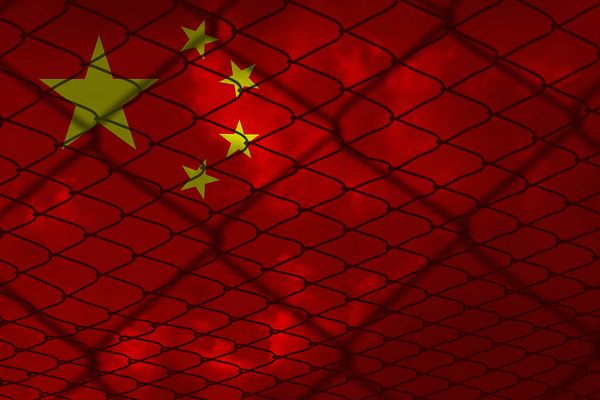How Should Australia Respond to China’s Arbitrary Detentions?
Last week’s sentencing in China of Canadian Michael Spavor on charges of espionage sent a stark warning to the international community about how China will use its power. The deep concern that is held toward this kind of behavior from the Chinese government was reflected in the significant number of diplomats from other countries who congregated at the Canadian Embassy in Beijing in a show of support. For Australia, the sentencing was especially troubling as China continues to arbitrarily detain two Australians, Cheng Lei and Yang Hengjun.
It seems inevitable that Spavor’s fate will be shared by Cheng and Yang, with both similarly accused of espionage, although no details of their alleged activities have been provided. Chinese courts have a conviction rate of close to 100 percent, and given that, like Spavor, these two Australians are more likely being held for political purposes, the Chinese Communist Party is unlikely to retreat from the point it is trying to make.
It has now been a year since Cheng was detained. Although Australian Embassy staff have had monthly video access to her, she has been prevented from speaking to her children, aged 10 and 12. As a journalist for the China Global Television Network (CGTN), she was a high-profile target for the Chinese government. The opaque nature of China’s legal system — and the Chinese government more broadly — means that any answers, real or invented, as to exactly why she is being held are not expected to be revealed.
Yang is a more complex case as he had previously worked for China’s powerful intelligence agency, the Ministry of State Security (MSS), prior to moving to Australia, where he subsequently became an outspoken critic of the Chinese government. This indicates that his detention is probably less about the pressure this exerts on Canberra, and more about a sense of betrayal felt by the CCP that a former member of the MSS would become an advocate for democratic reform and greater respect for human rights in China. Although it could be both.
Holding Australians like Yang and Cheng hostage is an essential demonstration of how the CCP understands power. It is not looking to make friends, it is looking for supplicants. Beijing has made the calculation that it prefers to be feared than loved. This behavior is a logical extension of the party’s ideology. As the party gained power via coercion, coercion remains the lens through which they see the world. The distrust the CCP has of the Chinese people — and the obedience it expects from them — is mirrored with the party’s international engagements.
Enjoying this article? Click here to subscribe for full access. Just $5 a month.
In contrast, liberal democracies are built on a large degree of trust, and this general trust they have for their publics is also the trust they seek with their international relationships. This leads to an advocacy of mutually beneficial rules and norms, with one central norm being that individuals are able to move between states without risk of being arbitrarily detained for political purposes. China doesn’t adhere to such rules because it doesn’t believe in them — everything is political to the CCP — but also because it knows that countries like Australia will not behave in a similar way in return.
Australia’s approach to both the arbitrary detention of its citizens, and the attempts at economic coercion from Beijing, has been one of firm restraint: To not submit itself to Chinese pressure, but also not get drawn into the use of inflammatory language (although members of the government’s backbench have been less restrained). This demonstrates that middle powers are able to hold their ground against bullying from greater powers, although it hasn’t induced Beijing to retreat from its tactics.
Diplomat Brief Weekly Newsletter N Get briefed on the story of the week, and developing stories to watch across the Asia-Pacific. Get the Newsletter
This approach may be deemed good enough, given the power discrepancy and the nature of the CCP. However, there is also one clear option currently on the table that could demonstrate to Beijing that the detainment of Cheng and Yang is unacceptable behavior, and that is boycotting the upcoming Winter Olympics.
Such a boycott has already been advocated by 180 human rights organizations due to China’s persecution of Uyghurs, its similar repression in Tibet, and its clampdown in Hong Kong. The practice of hostage diplomacy is one that cannot be normalized and does warrant a serious response from the international community as well. Last week Canadian opposition leader Erin O’Toole suggested that Canada should be considering such a boycott, not only as a strong signal to Beijing, but also due to the risk of athlete safety.
The fondness authoritarian regimes have for the Olympics as a tool of their power projection means that such a boycott would be a significant embarrassment for Beijing. It is likely, however, that Australia, Canada, and other countries like Sweden that have had their citizens arbitrarily detained may consider such a move to be too bold and antagonistic. But collective action may insulate these countries somewhat from Beijing’s reactions.
It is becoming clearer that China is undermining its own self-interest with the use of arbitrary detention as a blunt diplomatic instrument. The country is closing itself off to the world because the risk of travelling to China for research, business, tourism, or sporting events is now becoming too great. This also strengthens Taiwan’s position as the accessible and trustworthy caretaker of Chinese culture. The hope for Cheng and Yang would be that the CCP would come to this realization and alter its behavior, although the need for the party to demonstrate its brute strength domestically means that this is unlikely.













